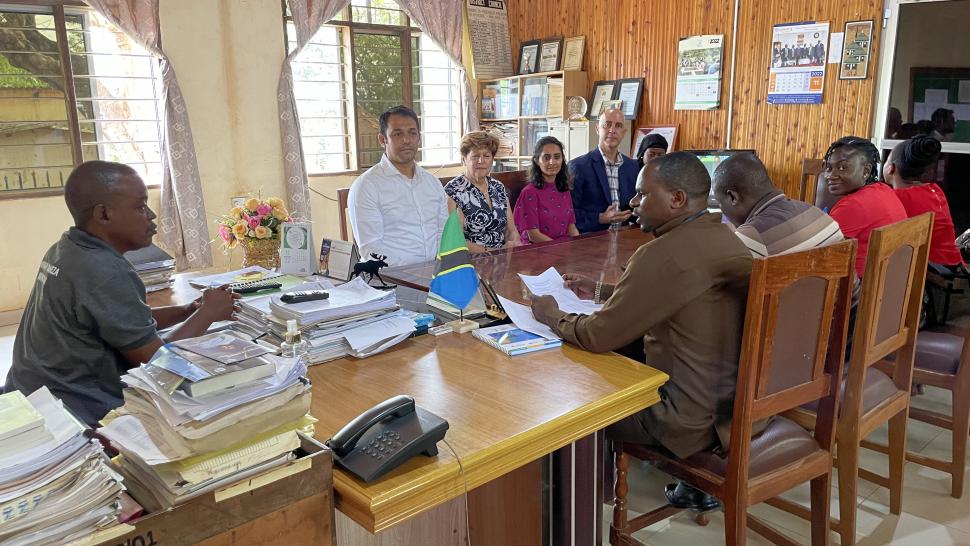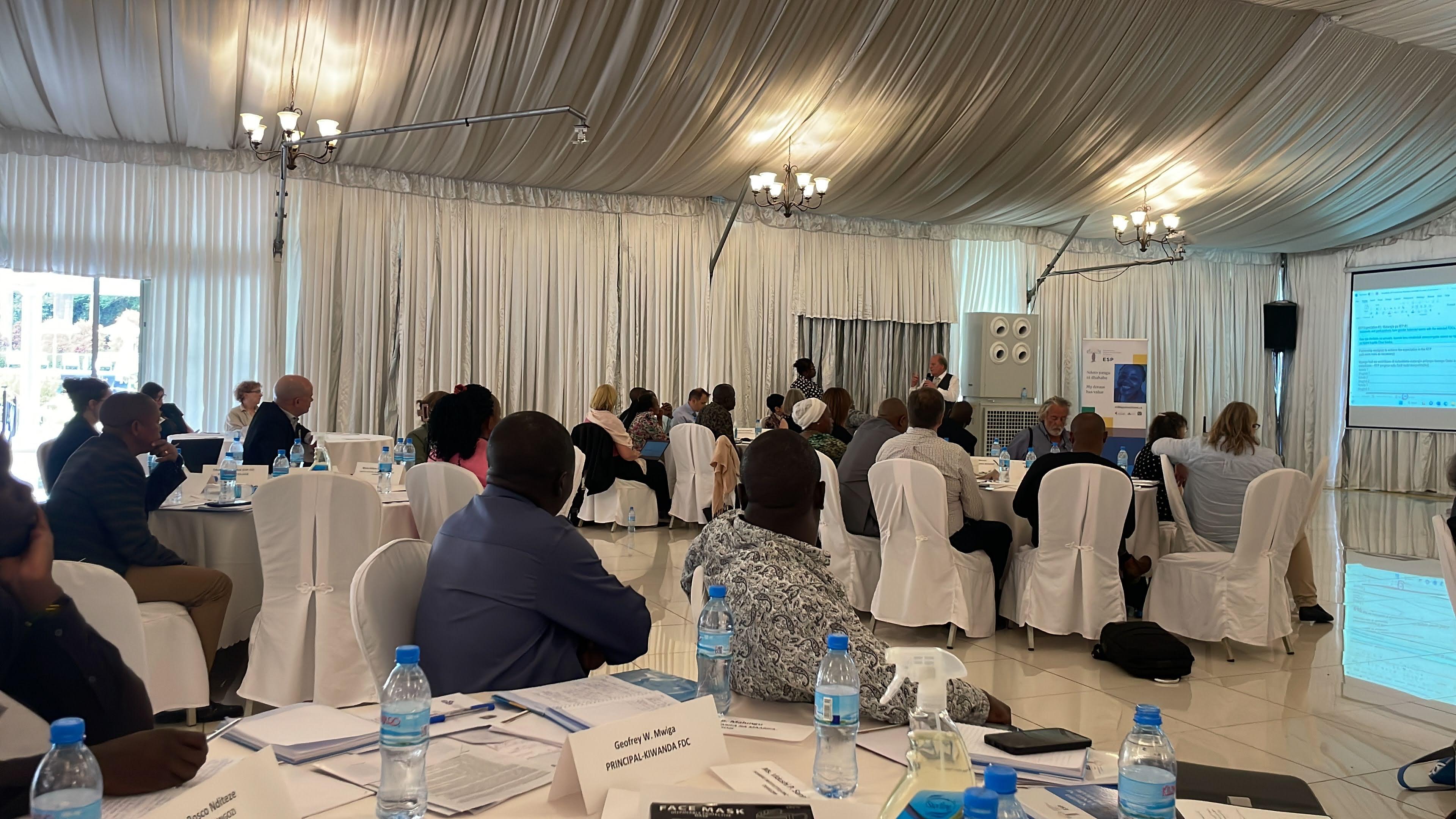
Humber College is helping strengthen alternative pathways to education and employment for women and adolescent girls in Tanzania as part of a Government of Canada project.
The Empowerment Through Skills Program in Tanzania is a seven-year initiative funded by the Canadian government through Global Affairs Canada (GAC) and implemented by Colleges and Institutes Canada (CICan) in collaboration with the Tanzanian Ministry of Education, Science and Technology. The project’s goal is to increase participation rates among women and adolescent girls in skills training programs while improving access to business, skills and gender and human rights training in their communities.
Humber is working with Kiwanda Folk Development College and Kasulu Folk Development College as well as community-based organizations Taarifa na Maarifa and ZICOSAD to deliver the program from 2022 to 2026.
Building capacity for women’s empowerment
Humber, in partnership with Cégep Saint-Jean-sur-Richelieu and Collège communautaire du Nouveau-Brunswick, will lead the development and delivery of competency-based education and training, gender-sensitive pedagogy embedding an environmentally sustainable design and entrepreneurial and essential life skills to build the capacity of the folk development colleges for women’s social and economic empowerment.
Vidushi Sanghadia is an international development project lead with the International Development Institute at Humber. Sanghadia noted many women and girls in Tanzania don’t continue with their education for a variety of reasons – from pregnancy to family responsibilities as well as poverty and the limitations imposed on them living in a patriarchal society. These factors restrict their opportunities and economic participation which continues to fuel societal gender imbalances in the country and reduces their quality of life.

Baseline data shows that gender inequality is a “huge issue” that needs to be urgently and immediately addressed, said Sanghadia.
“Partnering with educational institutes allows us to work directly with young people to help address gender inequality and increase the economic participation of women,” said Sanghadia. “Research shows that the increased financial independence of women also translates to a positive societal change in terms of gender imbalance.”
The Empowerment Through Skills Program seeks to help these women and girls find other pathways to education.
The folk colleges will offer vocational training in a variety of subjects including animal husbandry, welding, tailoring and carpentry, among others. The courses can be as short as six weeks with others lasting months and some running for a year or two.
The women and girls will also be encouraged and given the opportunity to participate in courses they traditionally may be excluded from because of their gender.
The folk colleges will also support students with their entrepreneurial goals to help them start their business. Industry connections will be developed so that graduates have a smooth transition into post-training employment.
Humber developing technical courses
To further remove barriers, housing is provided and the students can bring their families with them, which means they don’t have to leave children at home while they reengage with their education.
Humber will provide faculty and specialists to help train teachers at the two folk colleges. They will strengthen the Tanzanian teachers’ capacity to provide the technical skills training and will also develop gender and human rights training modules to embed in the courses.
The Humber team will also develop two technical courses to be taught at the folk colleges.
Representatives from Humber travelled to Tanzania in November for a fact-finding mission. Humber is now developing a work plan in conjunction with Cégep Saint-Jean-sur-Richelieu and Collège communautaire du Nouveau-Brunswick and hopes to be back in the country by the spring.
Humber has previously undertaken projects in Tanzania. In 2003, the College implemented the Rural Microfinance Management and Rural Entrepreneurship Development Scaling-Up Project in the city of Moshi.
As part of the project, Humber helped design and develop microfinance workshops and built the capacity of 40 Moshi University College of Cooperative and Business Studies faculty, of whom about 15 per cent were women, to offer microfinance management training. Humber and Moshi University College also established a Cooperative Entrepreneurship and Innovation Centre with the capacity to provide entrepreneurship training and small business counselling to subsistence farmers who accessed credit and started rural small enterprises.
About 2,150 entrepreneurs received training through the centre.